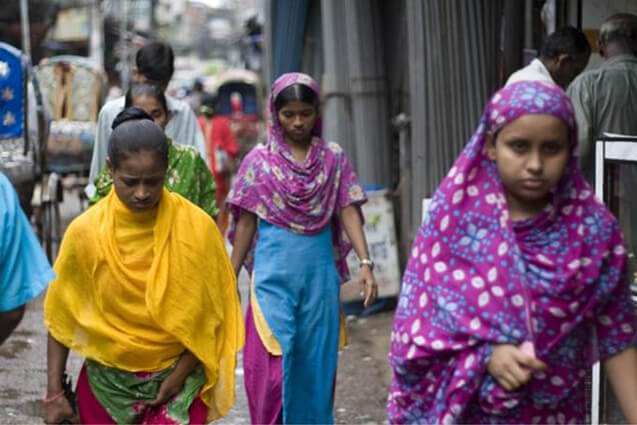More than 10 years after the first World Social Forum took place in Porto Alegre, Brazil, the latest South Asia Social Forum is already underway in Dhaka, Bangladesh. Like all Social Forum events, the occasion is a gathering of progressive and leftist activists, including representatives of social movements, trade unions and NGOs to make the world – and the region – a more just and equitable place.
This year’s Forum is special for two reasons. First, recent events in the Middle East, and the financial crisis in Europe and the United States indicate that the world is in a moment of transition, or perhaps just disruption. The hyper-capitalist expansion of the last 30 years, which has been a time of slow growth and increased inequality for much of the world, may be coming to an end. Consumption in the developed economies is ebbing, meaning that the development strategy forced upon poor countries like Bangladesh is less and less effective. This IMF-backed-model – based on unilateral trade liberalization, export-oriented production, privatization, and budget austerity – never worked in the countries that implemented it. The countries touted as development success stories today – including India, China, South Korea, Brazil and Argentina – are countries that flouted key aspects of this “Washington consensus”. The failure of these policies now extends beyond the developing world to countries like Greece, where austerity has been the policy imposed by the IMF – and even more so the European authorities — to deal with a high debt burden and has so far failed to produce any results, other than angry citizens and toppled governments. The vacuum left by these policies can be filled by policies designed to build a world that provides for the needs of the poorest rather than the luxuries of the richest – human need not corporate greed, as the slogan goes.
But there’s a second reason this Forum is unique. As deep as the failures of global economic policy have been, those failures are not the main flaw in the system. The reason those policies are in place is because political systems – be they dictatorships in the Middle East, or “democratic” governments like those in Europe and North America – are deeply corrupt. Time and again they cater to the interest of elites – be they elites on Wall Street or Mubarak’s cronies in Egypt – over the needs of the majority. The Occupy Wall Street movement in the U.S., and related actions around the world, perhaps demonstrate, finally, that people in even the wealthiest countries are waking up to this corruption.
The real crisis we face – whether in Europe or in South Asia – is a crisis of democracy. Bangladesh, celebrating it’s 40th year of independence in December, is an unfortunate example of how a lack of democracy, coupled with a history of war and aggression, and a vulnerability to natural disasters, can lead to devastating results.
For this reason, the main theme of this Social Forum is “Democracy for Social Transformation”. Only through a reclaiming of democratic space, through an insistence that government exists not to cater to the elites, but that government policy should prioritize the needs of the poorest and most marginalized, can we begin to implement policies that will allow the majority of the world’s population to live lives of dignity.
Dhaka University will be host to a range of activists and organizers discussing a range of issues related to expanding democracy. The Forum itself promises to be an interesting space, filled with cultural activities, plenary speeches and even a few government representatives. But the real work will come after the Forum.
Will whatever replaces the current global system be rooted in values of equality, justice and mutual respect? Or will it, like the previous system, be rooted in that all-too-familiar principle – personal profit for the few at all costs? Those who attend the Social Forum may help write the answer to these questions, not in the Social Forum itself, but in the organizing and activism that will come out of it.
 Author: Sameer Dossani
Author: Sameer Dossani




